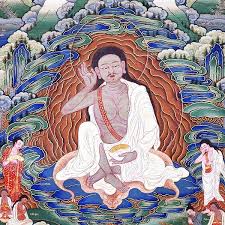A Tribute to the Courageous and Beautifully Spiritual John Lewis
“Walk with the winds brothers and sisters and let the spirit of peace and the power of everlasting love be your guide”
John Lewis –
Representative John Lewis died July 17, 2020 at the age of 80 after a battle with pancreatic cancer serving more than three decades in Congress. A civil rights icon who began his life as the son of sharecroppers was by all accounts an ordinary man who because of his bravery, his acts of courage and commitment to making this world a better, more just place, has changed this world. Almost losing his life during bloody Sunday’s march across the Edmund Pettus Bridge in Selma, Alabama and being on the frontlines of a bloody campaign to end Jim Crow laws, Lewis never gave up hope for making this country a better nation.
Lewis reminded us to answer the highest calling of one’s heart. He spent his life demonstrating that the way of peace, the way of love and nonviolence is the best way if we want to achieve that peace. What Lewis was describing are principles of political forgiveness. Political forgiveness triumphs over violence, aggression, and war. It is a healing force that unites us instead of that which divides us. It is inclusive, not exclusive. It is a healing force that helps us understand one another instead of hating one another. What John Lewis stood for was political forgiveness in action. His attitude and philosophy in life was based on love. He regarded everyone with dignity and respect. His civil rights activism and his views on nonviolence were based in restoring relationships. And his greatest dedication to his life was changing political structures from those that supported structural violence to those that reflected justice and equality. The Voting Act of 1965 reflected that. As former president Barack Obama said about Mr. Lewis, “he as much as anyone in our history brought this country a little bit closer to our highest ideals.” Political forgiveness is one of those highest ideals.
We are a work in progress. Much healing needs to take place on all levels of society. This is where the power lies in a political forgiveness process. It addresses all levels of society in a coordinated and healing capacity. Lewis demonstrated moral courage and has asked us to do the same. Forgiveness requires moral courage. Lewis stood for unity not division, love not hatred and embraced taking responsibility to create a better society. These are some of the principles of forgiveness on a political level. Lewis never gave up and persevered against all odds. These are the qualities for us to emulate especially in a political forgiveness process.
John Lewis will be profoundly missed. Let us never forget the light that he shined upon this world. The greatest tribute we can pay to John Lewis is to keep fighting for what he stood for and in the way he led his life. He was truly a most spiritual human being.





